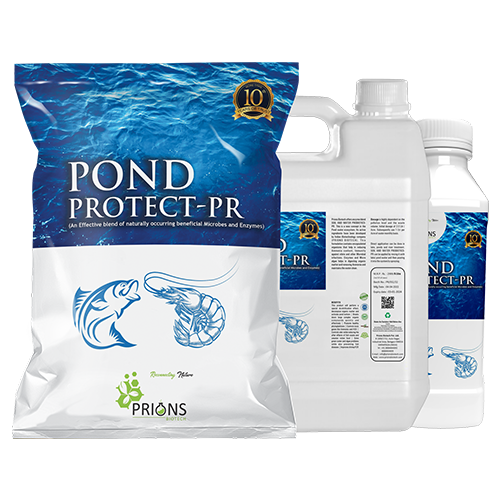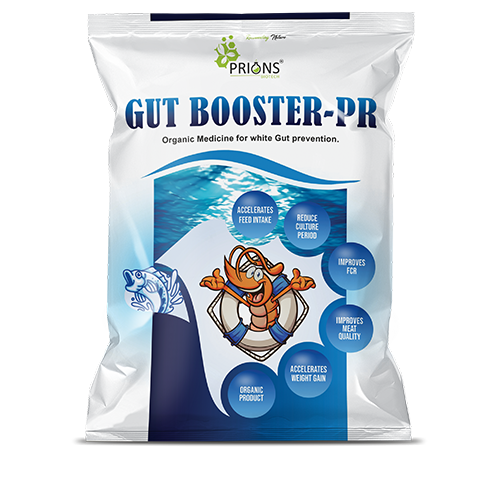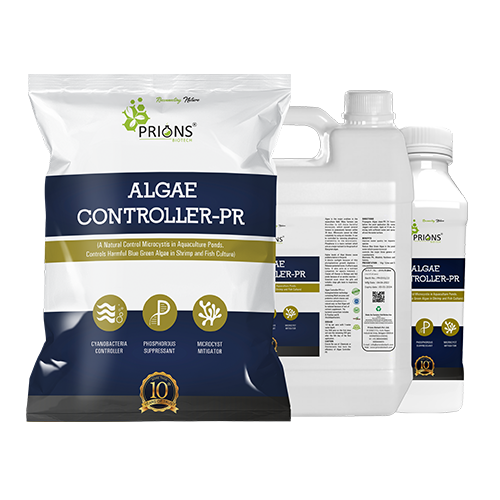Harnessing the Power of Probiotics: Enhancing Fish Health and Aquaculture Sustainability
Probiotics have been gaining recognition for their potential benefits in improving fish health and enhancing aquaculture practices. Embracing probiotics in aquaculture holds great promise for preserving a thriving aquatic ecosystem while bolstering the overall welfare of fish.
Probiotics assume a vital role in augmenting fish digestion and optimizing nutrient assimilation. They actively generate enzymes that facilitate the breakdown of intricate substances, rendering vital nutrients more readily available to the fish. This, in turn, translates into superior feed utilization, heightened growth rates, and an overall enhancement of fish well-being. Probiotics serve as effective agents in the prevention and control of fish diseases. By competing with harmful bacteria for resources and habitat, they effectively curtail the proliferation of pathogenic organisms. By fostering a harmonious microbial community, probiotics significantly contribute to the general health of fish, effectively thwarting the onset of diseases.
Moreover, probiotics stimulate the fish's immune system, reinforcing their resilience against infections and diseases. Through the modulation of immune responses, they amplify the production of immune cells and antibodies, thereby empowering fish to combat pathogens more effectively. This immune-boosting influence serves as a cornerstone for bolstering overall fish health and diminishing the reliance on antibiotics in aquaculture practices. Probiotics assume a fundamental and crucial function in enhancing the calibre of water within aquaculture systems. They actively degrade organic waste, excessive nutrients, and toxic substances, effectively mitigating the risk of water pollution. By fostering a thriving microbial equilibrium, probiotics facilitate the decomposition of waste materials, leading to cleaner and more transparent water for the fish.
Studies have convincingly demonstrated the affirmative impact of probiotics on fish reproduction. By contributing to the overall well-being of brood stock, probiotics yield tangible improvements in reproductive performance. They can heighten egg quality, augment fertilization rates, and enhance larval survival, culminating in highly successful breeding programs within the realm of aquaculture.
Embracing probiotics aligns seamlessly with the objectives of sustainable aquaculture practices. By reducing dependence on antibiotics and chemicals, probiotics offer an ecologically conscious approach to managing fish health. They actively promote natural processes, curbing the risk of antimicrobial resistance, and tangibly contributing to the overall sustainability of the aquaculture industry.
Enzyme Blend Soil and Water Probiotics: Long-Term Pond Management for a Healthy Ecosystem
Enzyme blend soil and water probiotics, such as the Pond Protector PR, are designed to provide long-term pond management and help maintain a healthy pond water ecosystem. Pond Protector PR products are specifically formulated to address various issues commonly encountered in ponds, such as algae overgrowth, foul odours, sludge build-up, and poor water quality.
The enzyme blend in these probiotics is carefully selected to enhance the natural processes occurring in the pond ecosystem. Enzymes are biological catalysts that speed up chemical reactions, breaking down organic matter and promoting nutrient cycling. By introducing specific enzymes into the pond, the probiotics help to accelerate the decomposition of organic waste, reducing the accumulation of sludge and excess nutrients that can contribute to water quality problems.
In addition to enzymes, soil and water probiotics also contain beneficial microorganisms. The presence of vital microorganisms, such as bacteria and fungi, serves as a pivotal component in preserving a harmonious pond ecosystem. These microorganisms aid in curbing the expansion of harmful algae through the process of out-competing them for essential nutrients and resources. Furthermore, they can break down harmful compounds, reduce odours, and improve water clarity.
It's important to note that while enzyme blends soil and water probiotics can be effective tools for pond management, they should be used in conjunction with other good practices. These practices may include proper aeration, regular water testing, appropriate fish stocking, and prudent use of fertilizers and other pond treatments.
Ultimately, the use of enzyme blend soil and water probiotics like Pond Protector PR can contribute to the overall health and balance of your pond, helping to create an environment that supports aquatic life and provides an enjoyable recreational space.

Optimizing Aquatic Health: Aqua Animal Probiotics, Multi-Enzymes, and Gut Boosters for Shrimp and Fish
Aqua animal probiotics, multi-enzymes mixtures, and gut boosters are specialized formulations intended to foster the vitality and welfare of aquatic shrimp and fish. These supplements encompass a spectrum of advantages, encompassing enhanced digestive processes, heightened absorption of nutrients, and a fortified immune system.
Aqua animal probiotics house advantageous bacteria that contribute to the well-being of the digestive systems of shrimp and fish. These bacteria aid in maintaining equilibrium of microflora within the intestinal tract, which is pivotal for appropriate digestion and efficient utilization of nutrients. By cultivating a wholesome gut environment, probiotics have the potential to amplify overall digestive efficacy, mitigate the likelihood of digestive disorders, and optimize the assimilation of vital nutrients derived from their diet.
The multi-enzyme mixture encompassed within these supplements assumes a crucial role in breaking down intricate nutrients found in the diet of shrimp and fish. Enzymes, being natural catalysts, accelerate biochemical reactions, thus facilitating the digestion and utilization of proteins, fats, and carbohydrates. By providing a fusion of enzymes meticulously chosen to cater to the digestive needs of shrimp and fish, the multi-enzyme mixture aids in maximizing the accessibility of nutrients, ultimately resulting in heightened growth rates, improved feed conversion, and overall enhanced performance.
Intestinal enhancers represent another pivotal component of these products, deliberately formulated to fortify and bolster the digestive and immune systems of shrimp and fish. The enhancers, commonly formulated with a blend of organic constituents like prebiotics, immunomodulatory compounds, vitalizing vitamins, and essential minerals, operate harmoniously to cultivate a thriving microbial community within the intestinal tract. This concerted action stimulates the synthesis of beneficial enzymes and antibodies while augmenting the overall immune response, leading to a heightened state of immunological vitality. Consequently, shrimp and fish become better equipped to resist pathogens, reduce the occurrence of diseases, and augment overall survival rates.
By integrating aqua animal probiotics, multi-enzyme mixtures, and intestinal enhancers into the management of shrimp and fish, aquaculture farmers can optimize the health, growth, and performance of their aquatic livestock, ultimately leading to more sustainable and successful aquaculture operations.

Maintaining Aquatic Excellence: Algae Controller and Aquaculture Grade Zeolite for Enhanced Fish Health
Algae control is a critical aspect of maintaining a healthy aquatic environment in the field of aquaculture. Excessive growth of algae can lead to a range of issues, including decreased levels of oxygen, degradation of water quality, and heightened competition for essential nutrients. To address these challenges, algae controllers have been developed specifically for aquaculture.
Algae controllers are formulated with carefully selected compounds that effectively inhibit the growth and proliferation of algae. These products work by targeting the biological processes and cellular structures of algae, preventing their development and spread. By implementing an algae control strategy, aquaculture farmers can maintain optimal water quality, improve visibility, and create a favourable environment for their fish or other aquatic organisms.
To effectively use an algae controller, it is important to carefully follow the manufacturer's instructions regarding application rates, timing, and frequency. Regularly monitoring the algae levels in the aquaculture system is of utmost importance to ascertain the treatment's efficacy in achieving the desired outcomes. By incorporating an algae controller into the aquaculture field, farmers can effectively manage algae growth and promote a healthy and thriving aquatic ecosystem.
Aquaculture grade zeolite is valuable in the field of fish health management. Zeolite is a naturally existing mineral renowned for its distinctive composition, featuring an expansive surface area and an intricate framework of interconnected pores. This exceptional structure enables zeolite to effectively adsorb and exchange ions and molecules in water, making it a useful additive for enhancing fish health in aquaculture.
The use of aquaculture grade zeolite offers several benefits for fish health. In the first place, it plays a vital role in preserving water quality at its best by effectively adsorbing and eliminating detrimental substances like ammonia and heavy metals. By reducing the concentration of these toxic compounds, zeolite minimizes stress on the fish and supports a healthier environment. Additionally, zeolite can also help to stabilize pH levels and improve water clarity.
Since fish are perpetually in contact with water, they have the capacity to absorb these minerals through their skin and gills, which consequently enhances their overall health and well-being. Zeolite also provides a favourable environment for beneficial bacteria colonization, which aids in biological filtration and contributes to a more stable and balanced aquatic ecosystem.
When using aquaculture grade zeolite, it is important to consider factors such as size. Regular monitoring of water parameters, such as ammonia levels, is crucial to assess the effectiveness of zeolite and make any necessary adjustments.

The Role of Dry Yeast and Vitamin C in Supporting Aquaculture Health, Growth, and Immunity
In aquaculture, probiotics are beneficial microorganisms that can be used to enhance the health and growth of aquatic organisms. Although customary practices in aquaculture encompass the utilization of dry yeast and vitamin C, they do not conventionally fall under the classification of probiotics. Nevertheless, they assume significant roles in fortifying the comprehensive health of aquaculture systems.
Dry yeast frequently finds its application in aquaculture as a reservoir of protein, vitamins, and minerals. It can act as a supplementary component in the dietary regimen of aquatic organisms, thereby furnishing indispensable nourishment for their proliferation and maturation. Furthermore, yeast contains advantageous compounds like beta-glucans, which exhibit the capacity to invigorate the immune system of fish and shrimp, consequently intensifying their resilience against diseases. While yeast itself lacks the presence of live bacteria necessary for probiotic classification, it can indirectly facilitate the growth and operation of beneficial bacteria in the gastrointestinal tract of aquatic organisms.
Natural Vitamin C, an aqueous-soluble vitamin exhibiting a propensity to effortlessly dissolve in water, assumes an imperative and pivotal function in fortifying the immune system while concurrently fostering the overall well-being and vitality of aquatic organisms. Within the realm of aquaculture, vitamin C finds application as a dietary supplement, enhancing the immune response and stress tolerance of fish and shrimp. By nurturing the immune system, vitamin C indirectly contributes to the establishment of a healthy intestinal milieu, which serves as a fundamental prerequisite for the thriving and functioning of beneficial gut bacteria.
